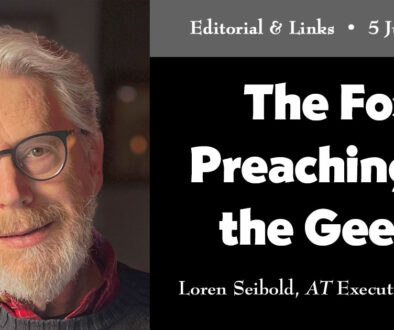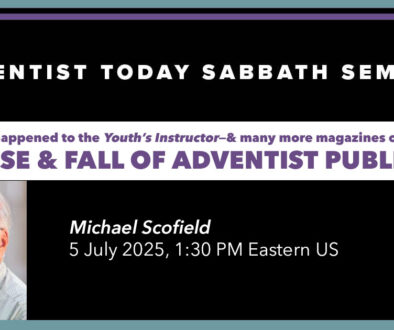Sharing Scripture for November 15 – 21, 2020
[symple_heading style=”” title=”Education and Redemption” type=”h1″ font_size=”40″ text_align=”center” margin_top=”0″ margin_bottom=”30″ color=”undefined” icon_left=”” icon_right=””]
This is a tool for you to use if you lead a Sabbath School (SS) class or small group. It is keyed to the Bible texts used in the current week’s Adult SS lesson and includes a brief story from current news you can use to introduce the discussion and then a series of discussion questions in a relational pattern designed to build fellowship and spiritual reflection.
For use: November 15 – 21
Texts: Genesis 1:26, 27; Isaiah 11:1-9; 2 Timothy 3:14-17; 1 Kings 4:29-34; John 14:17; 1 Corinthians 2:1-16
“There’s no proof homework helps students.” That’s what high school educator, Courtney White, shared a few weeks ago. The avalanche of recent responses wouldn’t surprise you. Some suggest this 27-year-old teacher is “not doing her job.” But she stated, “Students do enough work at school; they don’t need more at home!” The controversial clip in a now-viral TikTok video boasts over 1.6 million views.
Although many skeptics were quick to point out that homework is proof of mastery in what they’re learning, White replied, “Me not assigning homework doesn’t make me any less of a teacher. My kids show me mastery of content in class.” Students praised her alternative methods. One fan explained, “Having no homework motivates me to actually do classwork.” Another gushed, “Be my teacher pls [you’re] amazing.”
But some teachers point to the most comprehensive study on homework out of Duke University, “which does indeed find a strong correlation between reasonable amounts of out-of-class coursework and student performance. The findings held especially true for students in grades 7 through 12—the age group that White teaches.”
In this week’s Sabbath School lesson, “Education and Redemption,” we learn about God’s plan of education that goes outside typical classroom hours. In fact, the comprehensive teaching plan not only goes beyond standard subjects such as math, science, and arithmetic, but also calls for all human beings, regardless of age, to think of themselves as heaven’s students. And there’s more. Divine learning doesn’t just happen during our lifetime on this earth before the Second Coming, but will last for all eternity.
At the heart of God’s plan of education is redemption. Because of the entrance of sin, the divine image in people was marred. Therefore, the Lord set up lesson plans throughout Scripture to restore in us the original beauty and perfection the Creator first gave to us. Discovering the hidden truths of the universe and growing ever more into the likeness of the Maker isn’t a temporary assignment, but is enjoyable homework that will last forever.
Even more, it was never God’s intention that people stop learning. We learn in Monday’s lesson that Jesus was referred to as Teacher and that it was the Lord’s wish that “the knowledge of the Lord” (Isaiah 11:9) would cover the entire earth. The Great Commission (Matthew 28:16-20) encourages every disciple to teach and share the gospel everywhere. From Genesis to Revelation, the Bible is central to the lesson plans that we are to learn from and pass along to others.
And while Scripture may not use educational terminology familiar to us today, the “wisdom” we read about, especially in the book of Proverbs, demonstrates heaven’s intention that we all gain deeper insights into the mysteries of God that shape our lives on a day-to-day basis.
[symple_divider style=”solid” margin_top=”20″ margin_bottom=”10″]
Connecting: Can you think of a teacher in your life who was especially persistent and helped you move beyond a learning barrier? How did that teacher make you feel?
Sharing: Read 1 Corinthians 2:1-16. What does Paul teach us about divine education?
- True educators do not focus on boasting about their knowledge and abilities, but teach in humility (v. 1).
- The education of heaven focuses on redemption and the work of Christ in your life (v. 2).
- Heavenly teachers are not afraid to admit their imperfections (v. 3).
- A teacher’s best work is done in combination with power from the Holy Spirit (v. 4).
- The final authority for true learning comes from the Bible, not from human ideas (v. 5).
- Other…
Applying: You’ve been asked to be a member of your local church school board and you’ve been asked to conduct a short worship talk. Your topic is “true education.” Write out the first two sentences of your talk based on some of the things you’ve learned in this lesson.
Valuing: Maybe you didn’t like school when you were growing up, so the idea of education for eternity doesn’t really appeal to you. Pray, perhaps over Zoom or the phone, with one other person and ask God to help you know more fully heaven’s personalized plan for your education.
~ Curtis Rittenour




